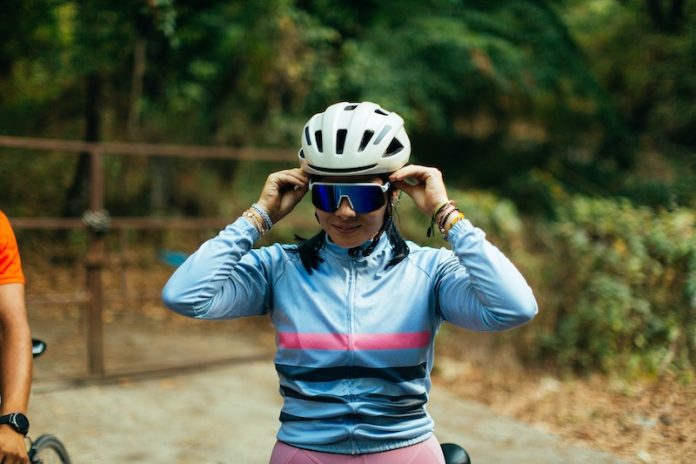
Most women love the comfort and style of activewear, the sporty clothes you can wear all day, whether you’re working out or just relaxing.
You might think that dressing in clothes linked with fitness and health would make you feel good about yourself.
But, two new studies from Edith Cowan University (ECU) suggest that shopping for activewear online might actually make women feel worse about their bodies.
Big Business: Activewear’s Global Growth
Activewear, or “athleisure” as it’s sometimes called, is a mix of athletic clothing that people often wear outside the gym, just going about their day.
Since COVID-19 began, sales of this comfy, versatile clothing have exploded. By 2024, it’s predicted the activewear market could be worth over $548 billion worldwide.
These new studies, led by ECU psychology researcher Dr. Ross Hollett, are the first to use an eye-tracking experiment to look at how shopping for activewear online impacts how women feel about their bodies.
During the study, women spent 15-20 minutes browsing different websites. Some women looked at activewear, others at casual clothing, and some at home decor.
Afterwards, the researchers measured how the women felt about their bodies and their self-esteem, both by asking them and by measuring how quickly they reacted to certain prompts.
They also used eye-tracking technology to see where the women looked when shown pictures of other women. The question was whether looking at different types of websites would change where women looked.
Activewear Shopping and Body Image: The Findings
The results were clear. Women felt worse about their bodies and had lower self-esteem after browsing an activewear website compared to browsing for casual clothing or homewares.
Dr. Hollett explains that activewear companies often use marketing images that focus on the body. The models are usually very fit and the clothes are often tight or revealing.
“This type of imagery can make women feel bad about their bodies because it promotes an ideal body shape that’s hard to achieve,” he says.
Eye-Tracking Clues
The eye-tracking part of the experiment revealed something interesting. Women who had been browsing activewear tended to look less at other women’s bodies and more at their faces.
Dr. Hollett suggests that this might be because looking at the body-focused images on the activewear website made the women feel uncomfortable about their own bodies. After that, they were less likely to look at other women’s bodies.
Choosing the Right Website
Nearly all of the women in the study had shopped for clothes online at some point, and 80% had done so in the last month.
They spent between 90 and 100 minutes a week browsing for clothes online. Activewear was one of the most popular types of clothing they looked at, second only to casual wear.
“One of our studies found that online shopping can help improve women’s mood, providing a distraction from daily stress,” says Dr. Hollett. But he warns that the type of website women visit is crucial.
“Some clothing websites might make women feel bad about themselves because they’re comparing their bodies to the fit and toned models,” he says. In the long term, this could lead to issues like body shame and depression.
Retailers’ Responsibility
Dr. Hollett believes that clothing companies need to think about the impact of their advertising images on customers’ mental health, in the same way they’re expected to consider their environmental impact and labor practices.
“Our research suggests that using images that objectify women can harm women’s mental health,” he says.
He hopes these findings will encourage retailers to think of new ways to advertise that can both promote their products and protect their customers’ self-esteem.
If you care about wellness, please read studies that hop extract could reduce belly fat in overweight people, and early time-restricted eating could help lose weight .
For more information about wellness, please see recent studies that Mediterranean diet can reduce belly fat much better, and Keto diet could help control body weight and blood sugar in diabetes.
The study was published in the International Journal of Consumer Studies.
Follow us on Twitter for more articles about this topic.
Copyright © 2023 Knowridge Science Report. All rights reserved.



